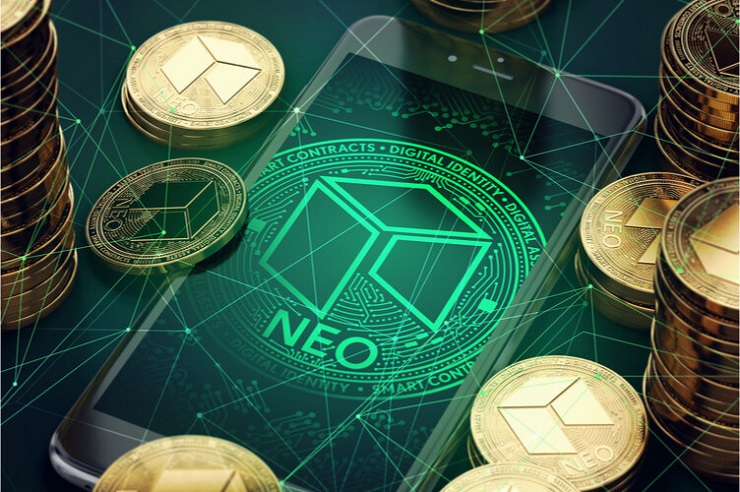The second half of the 20th century was marked by the world economy suffering irreversible and potentially catastrophic changes. Once the US obtained virtually uncontested economic and military influence in the world, the Federal Reserve found itself in a position where it was able to print piles of dollars on demand without worrying about the overall sustainability of global finances. This resulted in decades of warmongering, media manipulation and a cult of consumption that turned to be highly profitable for the US, which would exchange goods from all across the globe for useless pieces of green paper. Essentially, the con of the century has come to bear. The situation resembles a TV show where banks, corporations, rating agencies and governments have become a part of a huge conspiracy aimed at persuading the rest of the world that Washington’s securities are the safest assets in the world, even safer than gold.
It was only logical that some alternative system would eventually contest the dominance of the American dolla, and crypto currencies have emerged as the tool states were waiting for begin the process of de-dollarization. At the same time this article is not going to try to downplay in any way the fact that Bitcoin has been created and utilized by American and British intelligence agencies to move liquidity quickly without tying it to finance their operations overseas. One can note that the creator of Bitcoin, Satoshi Nakamoto, turned out to be “a group of American cryptographers.”
It’s been noted that a limited number of countries have emerged as cryptocurrency havens and have played a pivotal role in the development of cryptocurrencies. The top three around the world by the rate of adoption of cryptocurrencies are South Korea, Russia and Venezuela. And across all three, cryptocurrency is widely seen as a different means to a different end.
In South Korea, cryptocurrencies have been widely perceived as an alternative investment path that can potentially deliver enormous returns in a highly competitive environment.
In Venezuela the rapid development of cryptocurrencies was triggered by an economic collapse spurred by Western sanctions against this oil-producing country. Some would argue that cryptocurrencies in Venezuela are seen as a more convenient and reliable store of value than the destitute bolívar, despite its volatility.
As for Russia, the consensus is that the rapid rate of adoption of cryptocurrencies was spurred by a combination of a perfect crypto mining environment and situational investor sentiment, backed up by the encouragement of authorities and a lot of local talent.
Furthermore, Moscow knows it’s an attractive option and is willing to sweeten the deal further, by offering a level of government support to miners and investors that cannot be not found in the US or China. Some sources say that the level of official support can vary widely in various American states, while it’s noticeably absent in China.
Last month, Russia’s State Duma issued preliminary approval of a draft bill that brings cryptocurrencies into Russia’s legal field. The potential law defines cryptocurrencies as property and establishes parameters of transactions. The largest bank in Russia, Sberbank has announced the first official ICO (initial coin offerings) of Russia’s proprietary cryptocurrency. The Senior Vice President of this entity, Igor Bulantsev announced that it believes that this currency is going to be a successful venture as both clients of the bank and investors are interested in a exploring new options.
At the same time, financial authorities of various states have pointed out the risks associated with investing in crypto assets: the lack of protection of investors’ rights, the risks associated with the prevention of money laundering and terrorist financing, the lack of market liquidity, and operational concerns.
As for Russia’s evaluation of crypo assets themselves, the Central Bank of the Russian Federation released a financial stability review, which states that today, crypto assets do not pose a threat to global financial stability, since the volume of transactions made in this form of currency remains relatively low. However, expert believe that crypto assets could put pressure on the traditional financial markets if they continue to grow at a rapid pace, while getting retail and government investors on board. However, due to high volatility, cryptocurrencies are still not being regarded as a reliable investment vehicle.
Unlike the generally accepted official currencies, transactions in cryptocurrency can not be hampered by local authorities in any state. Therefore, there’s a general belief that in a situation when the US and EU impose sanctions against other states, a number of countries will be able to circumvent international sanctions through the use of crypto assets. For many countries that have been subjected to harsh sanction regimes, cryptocurrencies may become a viable substitute for international banking systems like SWIFT.
However, foreign capital instruments are not the only tool states find themselves deprived of, as consumer payment systems like Paypal or Venmo are also limiting their operations in certain countries. These imposed limitations can also be circumvented in a world with booming cryptocurrency markets.
According to a recent statement by the head of the Iranian parliamentary commission on economic issues, Mohammad Reza, as both Iran and Russia find themselves affected by Washington’s sanctions and a number of EU countries joining them, dollar settlements can be switched for crypto settlements. In addition, the Iranian parliament called on the Central Bank of Iran to explore other possible options for the use of digital assets.
Against this background, many experts are convinced that cryptocurrencies can reinvigorate the international financial system as the previously unchallenged dominance of dollar over financial markets comes to an end.
Martin Berger is a freelance journalist and geopolitical analyst, exclusively for the online magazine “New Eastern Outlook.”

